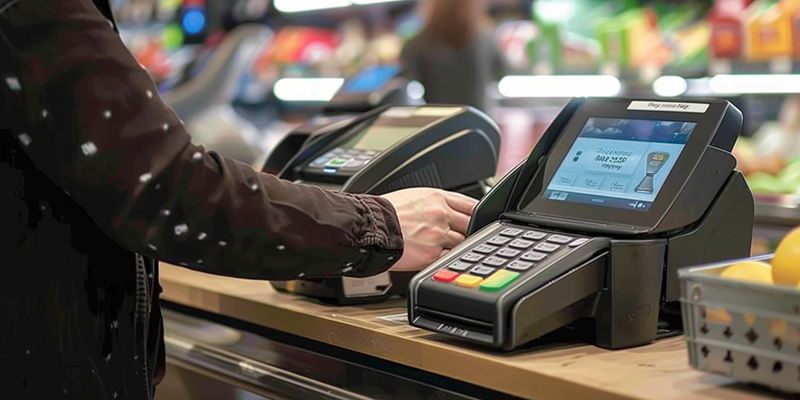In the throes of a dynamic and ever-evolving global financial landscape, South Africa stands on the cusp of a major economic overhaul through the strategic implementation of a cashless economy. The South African Reserve Bank (SARB) has introduced an ambitious roadmap that seeks to pivot the nation away from its historical reliance on tangible currency, in favor of digital transactions. This transformation is expected to equate to a more inclusive financial system that boosts innovation, competition, and ultimately, economic growth.
As an indicator of the nation’s preparedness for this change, an impressive 94% of South African adults own at least one bank account. However, the persistent use of physical cash, especially in rural and less financially serviced areas, is holding back economic participation and innovation. This push for digital transformation is viewed as a springboard for enhanced economic access and job creation that will benefit a significant proportion of the population.
Embracing the Digital Revolution
The essence of SARB’s initiative is steeped in the integration of digital payment technologies and the fostering of competition within South Africa’s financial sector. This strategic action aims to catapult the nation into a new era where advanced payment technologies, such as mobile money, are not just accessible but a normative part of day-to-day transactions. For consumers and businesses alike, this could lead to an incredibly efficient and wide-ranging suite of financial services and opportunities.
The roadmap considers with keen interest the impact on various demographic segments, particularly those in rural communities that face barriers to entry in the current financial model. Here, the importance of digital access and financial education becomes paramount. By embracing mobile money and looking ahead to the prospects of central bank digital currencies (CBDCs), South Africa is setting the stage for a transformative financial landscape that prioritizes inclusivity and pragmatic innovation.
The Pillars of Security and Trust
None of the bright prospects of a cashless society can come to fruition without a foundational level of security and trust. The SARB recognizes this critical need and proposes a robust regime of security measures, such as two-factor authentication, to protect every transaction. These protocols are designed not only to secure the transactional process but also the confidence of the consumers as they participate in the digital economy.
The roadmap further outlines a comprehensive plan to educate the public on the benefits and safety of digital payments. By diminishing fears and misconceptions, the transition to digital platforms becomes smoother, setting a solid foundation for systemic trust. This deep-seated trust is essential for widespread acceptance and is depicted as the cornerstone for South Africa’s new financial era marked by a cashless economy.
Stimulating Economic Inclusion and Growth
Underlying the SARB’s ambitious roadmap is a fundamental goal: to extend the reach of the financial sector to previously unbanked populations. By offering greater access to financial services through digital means, the plan opens up a world of possibilities for entrepreneurship, job creation, and innovation. This increased accessibility is expected to spark new businesses and encourage fresh investments across the economic spectrum.
The roadmap also foresees the entrance of non-banking financial institutions and fintech companies into South Africa’s financial scene. This move is seen as key to fostering competitive pricing and providing consumers with an array of payment options that not only suit their needs but also underpin their economic well-being. The introduction of these new players could mark a watershed moment in the journey towards inclusive economic growth and financial services democratization.
Fostering Fintech and Non-Banking Innovations
One cannot overlook the transformative influence that technology, particularly fintech and non-banking institutions, has on the future financial landscape. This section explores the SARB’s strategic collaborations with these players, aiming to drive innovation and a competitive edge within the digital payments arena. The exploration of CBDCs and the expansive reach of mobile money are at the forefront of this movement, setting South Africa on a path that could revolutionize the very nature of transactional activities.
With such advancements come both opportunities and challenges. It’s crucial to assess how these technological strides align with the SARB’s vision of a cashless economy or whether they present new hurdles to be navigated. Regardless, the brave new world of digital finance in South Africa appears to be rich with potential, promising to redraw the lines of what is possible within the parameters of modern banking and economic engagement.
Charting the Course Ahead
Finally, as South Africa embarks on this journey toward a digital economy, the question now becomes: What are the practical steps to bring the SARB’s roadmap to life? The development of robust digital infrastructure and nurturing of public trust are cited as critical components that will dictate the trajectory and success of this endeavor. These steps are not merely guidelines but vital cogs in the engine that will drive South Africa towards a secure, efficient, and inclusive financial future.
This strategic shift has significant implications for both the local and global market, positioning South Africa within an interconnected world economy. The collaborative efforts among government entities, financial institutions, consumers, and fintech companies form a matrix of stakeholder engagement that is indispensable for the successful realization of a cashless society. With a clear vision and structured approach, South Africa’s roadmap to cashless transactions and economic growth is a beacon of hope for a more prosperous and streamlined future.

